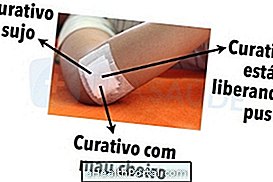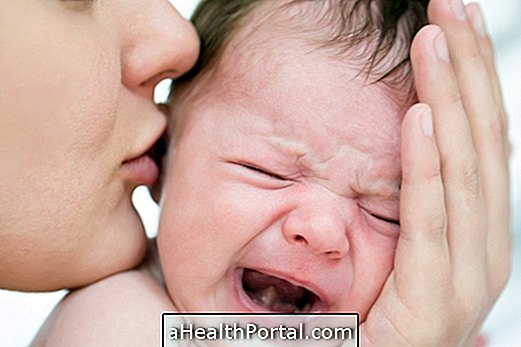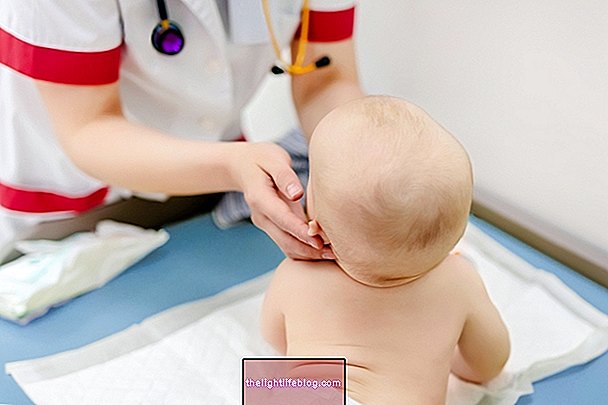The inguinal hernia is a protuberance that arises in the groin area, more common in men, which is usually due to a part of the intestine that comes through a weak point of the abdominal muscles.
There are 2 main types of inguinal hernia:
- Direct inguinal hernia : it is more common in adults and the elderly, happening after making efforts that increase the pressure in the belly;
- Indirect Inguinal Hernia : It is more common in infants and children because it happens because of a congenital problem in the abdominal wall.
In both cases the treatment is done with surgery, to reposition the intestine in the correct place and strengthen the muscles of the abdomen, so that it does not happen again.
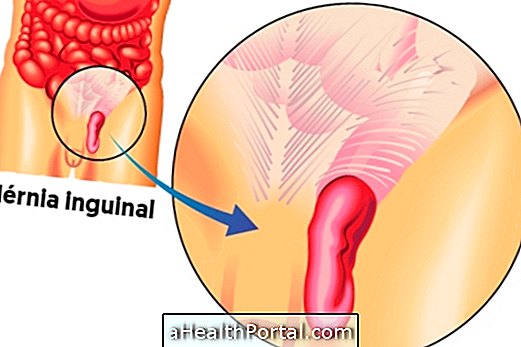
Main symptoms
The most common symptoms of inguinal hernia are:
- Protuberance or swelling in the groin area;
- Pain or discomfort in the groin when standing up, bending or lifting weight;
- Feeling of weight in the groin.
In infants, the hernia may be more difficult to identify because there may not be a groin protrusion at the time of changing the diaper. However, one way to assess the presence of the hernia is to watch the region when the baby cries, since the pressure caused by crying makes the hernia more visible.
In men, in addition to the classic hernia symptoms, there may also be a sharp pain that radiates to the testicles.
In almost all cases of hernia, the bowel can be pushed manually into the abdomen, relieving the symptoms, but it is always necessary to do surgery to definitely correct the problem. When the hernia does not return to the inside of the abdomen, there is a high risk of incarceration, where the intestine becomes trapped and tissue death may occur.
Symptoms of imprisoned hernia
In cases where the bowel is trapped, symptoms such as:
- Vomiting;
- Abdominal distension;
- Absence of feces;
- Swelling of the inguinal region.
This type of complication is more common in infants since the hernia is often difficult to identify and so, as the treatment is not started, the hernia gets worse over time. Thus, it is advised that if there is suspicion of hernia in the baby, consult your pediatrician as soon as possible.
How to confirm the diagnosis
The diagnosis of hernia is usually made by the doctor only with the observation of the site, however, in some cases, it may be necessary to perform an MRI or a MRI to confirm the diagnosis.
How is the surgery for inguinal hernia
Inguinal hernia surgery is the best form of treatment and is especially indicated when it has symptoms. The surgery is performed under local or spinal anesthesia and lasts for about 2 hours. In some cases the doctor may put a kind of "net" in place to prevent the hernia from reappearing.
Recovery is relatively fast, but care should be taken as:
- Avoid stretching the trunk until complete wound healing;
- Do not hold more than 2 kg in weight;
- Do not sleep on your stomach;
- Increase the consumption of foods high in fiber, to avoid the effort to evacuate;
In addition, it is also advised to avoid sitting for a long time during the first month, so it is not recommended to drive.
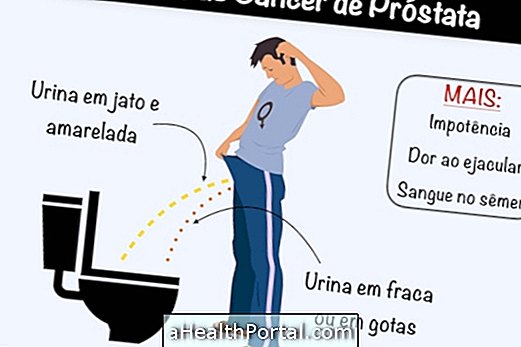
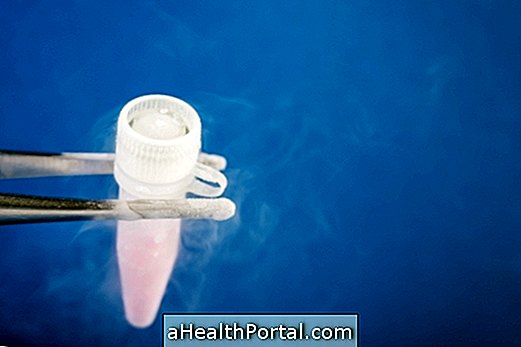
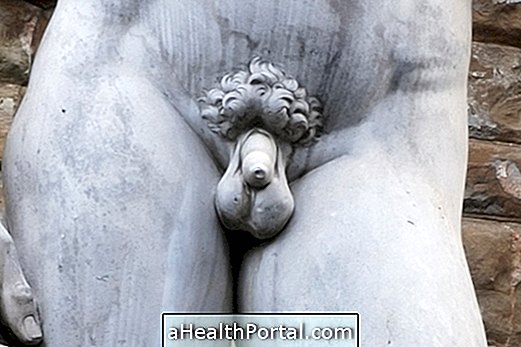
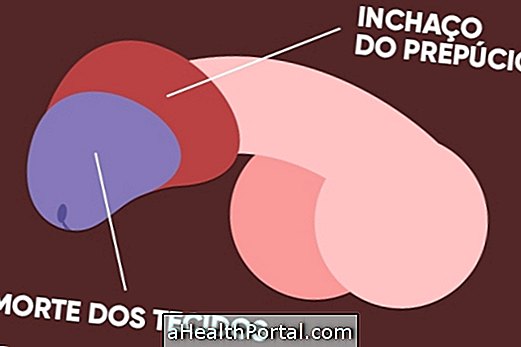
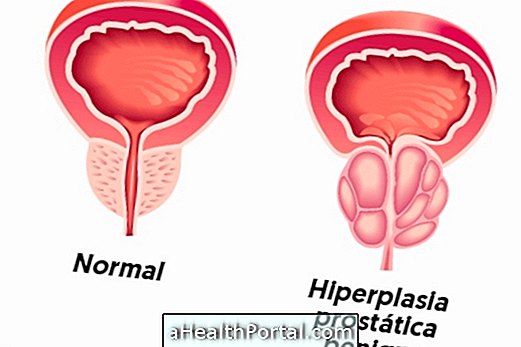
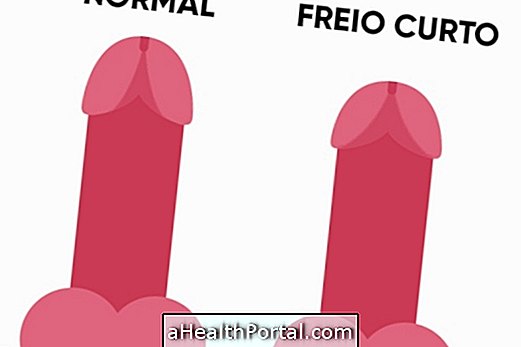




.png)







